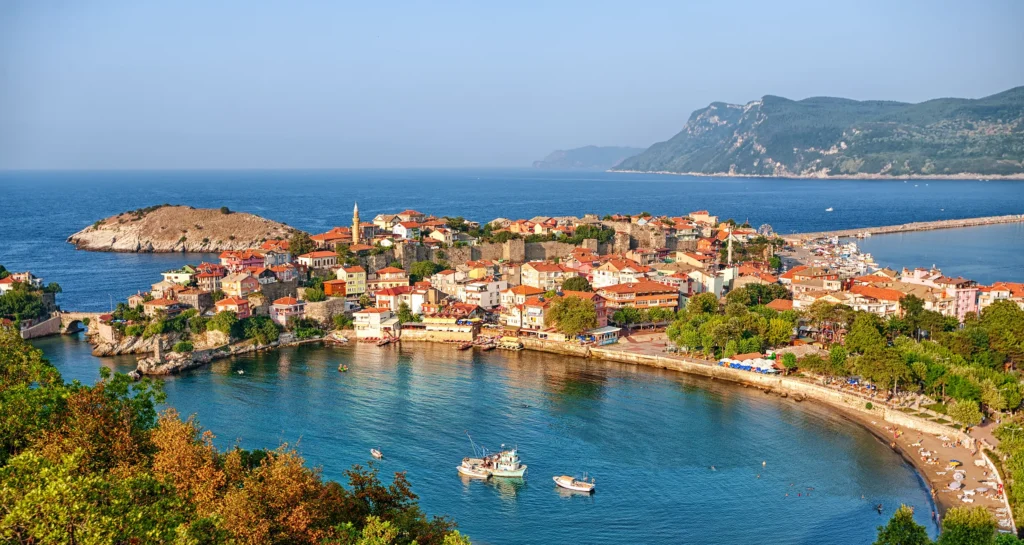Is Investing in Vacation Homes in Turkey Profitable?
Investing in vacation homes is a trend that has been gaining traction globally, with Turkey becoming a hotspot for such investments due to its rich history, stunning landscapes, and booming tourism industry. However, whether this investment turns out to be profitable hinges on various factors including tourism trends, property market dynamics, regulatory environment, operational costs, and economic stability. This article delves into these aspects to provide a comprehensive analysis of the profitability of investing in vacation homes in Turkey.
Investing in vacation homes in Turkey offers substantial opportunities but comes with its risks. The key to profitability lies in choosing the right property in the right location, understanding and adapting to the seasonal nature of the tourism market, managing operational costs effectively, and navigating the economic and regulatory landscape. With diligent research and perhaps some expert advice, investors can indeed find profitable ventures in Turkey’s vibrant vacation home market.

Tourism Trends: A Key Driver of Demand
Turkey’s appeal as a travel destination is undeniable. From the historical allure of Istanbul to the sun-soaked beaches of Antalya and Bodrum, the country offers diverse attractions that draw millions of tourists annually. According to the Turkish Statistical Institute, Turkey welcomed over 45 million tourists in 2019, marking a steady increase over the years. This influx plays a pivotal role in driving demand for vacation homes, with areas popular among tourists seeing higher rental yields.
However, investors should consider the seasonality of tourism. The peak tourist season in Turkey runs from April to October, during which rental income can be maximized. In the off-season, though, demand wanes, potentially affecting profitability unless managed carefully with strategic marketing and alternate rental strategies.

Real Estate Market Dynamics: Location, Location, Location
The adage of location being key in real estate holds especially true for vacation properties in Turkey. Areas like Istanbul, Antalya, Bodrum, and Cappadocia are prime locations due to their high tourist footfall. Properties in these areas not only retain their value but also appreciate over time, making them lucrative investment opportunities.
Nonetheless, the real estate market in Turkey is influenced by broader economic conditions, currency volatility, and political stability. For instance, fluctuations in the Turkish Lira can impact the cost of purchasing and maintaining property. Thus, investors need to stay abreast of market trends and economic indicators to make informed decisions.

Regulatory Environment and Foreign Investment
Turkey has been encouraging foreign investment in its real estate sector through various incentives, including a citizenship-by-investment program that allows investors to obtain Turkish citizenship under certain conditions. This has bolstered the market with an influx of foreign capital, elevating property demand and prices.
The regulatory framework in Turkey is generally favorable for foreign investors, but it is advisable to understand the local laws concerning property ownership, taxation, and repatriation of funds. For example, rental income is taxable in Turkey, and there may be capital gains taxes on the sale of property, which should be factored into profitability calculations.
Operational Costs and Property Management
Maintaining a vacation home incurs significant costs. Regular upkeep, utility bills, property management fees, and taxes can eat into rental profits. For investors not residing in Turkey, hiring a local property management company might be necessary. These firms handle everything from marketing the property to handling guest relations and maintenance, which, while reducing the burden on the owner, also adds to the operational costs.

Moreover, the level of service provided and the condition of the property significantly affect rental income and occupancy rates. High-quality, well-maintained properties in tourist-favored areas are more likely to achieve higher rents and more frequent bookings.
Economic Factors: Currency and Stability
The Turkish economy has experienced volatility, marked by inflation and currency fluctuations. While a weaker Lira makes it cheaper for foreigners to buy property, it also affects the local cost dynamics and the profitability when converting rental income or sale proceeds into foreign currency.
Economic stability is another crucial factor. Prospective investors should monitor geopolitical developments, economic policies, and international relations, as these can influence the overall investment climate in Turkey.
In summary, while the potential for high returns is definitely present, success in this market requires a well-thought-out strategy tailored to the unique dynamics of the Turkish real estate and tourism sectors. Investors should be prepared for a long-term commitment and stay flexible to adapt to changing market conditions to maximize their returns.


